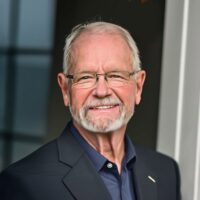My annual checkup was a perfunctory experience. My physician spent most of the time looking down at his computer screen. I got the sense that I was being led through a checklist, rather than having a real, compassionate conversation about my health concerns. Many of my friends have described similar experiences. The once cherished doctor-patient relationship has been replaced by short face-to-face interactions focused on updating and maintaining electronic medical records (EMRs). Both physicians and patients report feeling stressed and unsatisfied.
HCPs are stuck in a broken system
Burnout among healthcare professionals (HCPs) is rampant. Their frustrations center around inefficient EMRs, lack of clinical autonomy, and regulatory paperwork burdens. The Agency for Healthcare Research and Quality reports that 50% of HCPs wish they had more time with patients to offer more proactive care. But current allocations often don’t allow them to address patients’ concerns in the manner they or their patients would like. They report feeling overworked, overbooked, frustrated, and underappreciated.
The InCrowd US Physician Feelings on Burnout 2022 Report paints a sobering picture of their attitudes toward their professions:
- Nearly 30% said they have considered leaving their clinical care profession in the last six months, up from 20% in 2021.
- 70% said they feel frustrated by the pressure on HCPs in today’s world—up from 47% in 2021.
- Only 16% would encourage their children or family members to pursue a career in healthcare, down from 30% in 2021.
- Just 6% of U.S. doctors said they feel optimistic about the state of public health in the U.S., down from 17% in 2021.
It turns out that HCPs and patients want the same things: a robust discussion of patient needs, greater connectivity, and convenience.
Brainstorming a better way through HCP training
My recent doctor’s visit got me thinking about Blueline’s work for a global pharmaceutical company. Clinical trial participants frequently drop out of trials at a high rate, extending the time needed to complete a trial study. Drawing on their behavioral scientists, the company created a conversation model designed to address patients’ concerns/questions in a manner that would build trust and confidence in the HCPs and, thus, the trial. We designed a multi-modal training offering to help clinical trial coordinators use this conversation model to tap into patient motivation for participating in the trial while increasing their trust and confidence.
The training helped HCPs have efficient and effective conversations based on three key patient needs:
- Feeling Understood
- Demonstrating empathy towards their patient’s situation and questions
- Verifying the patient’s clear understanding of the information provided
- Investigating barriers within the patient’s context
- Feeling a Connection
- Using focused questions to foster patient dialogue and efficiently uncover concerns
- Using plain language that patients understood
- Feeling of Participation and Empowerment
- Facilitating collaborative conversations to ensure patients understand their role in the treatment or study
- Discussing available choices and fostering independent decision-making
Rooted in empathy and clarity, this framework holds immense potential for broader healthcare practices.
HCP training: A prescription for healthcare workers
We won’t pretend that we can fix a broken medical system. However, by aligning the needs of HCPs and patients, we can take steps toward restoring the essence of healthcare—a partnership built on trust, understanding, and empowerment. HCP scenario simulation training (both synchronous and asynchronous) is helping HCPs learn how to operate in a time-pressured environment—fulfilling EMR responsibilities while building trust and confidence with patients.
Training includes contextual scenarios related to:
- Asking focused questions, clarifying, and confirming understanding
- Empathetic communication
- Using language that makes patients feel heard
Empowering HCPs in a demanding healthcare landscape
The truth is that most HCPs entered the field driven by a desire to help people. They long for trusted relationships with patients, yet find themselves trapped by administrative demands and impossible time pressures. The path forward lies in helping HCPs harness efficiency without sacrificing the core values of trust and confidence. While HCP training won’t solve all the inherent challenges of U.S. healthcare, it can go a long way in empowering both HCPs and patients to make the most of the system in which we find ourselves.
Interested in exploring the potential of HCP training? We’d love to hear from you.


